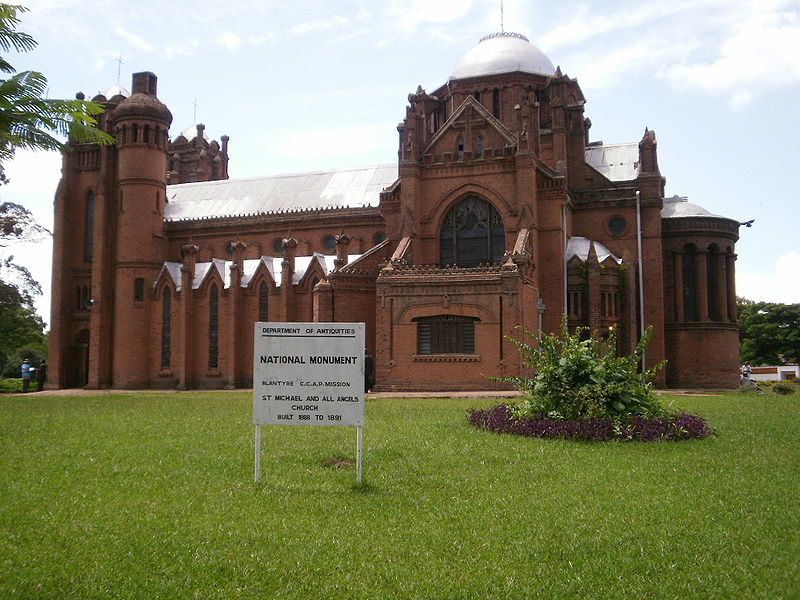
Executive Summary
The constitution and other laws and policies protect religious freedom and, in practice, the government generally respected religious freedom. The government did not demonstrate a trend toward either improvement or deterioration in respect for and protection of the right to religious freedom.
There were no documented cases of societal abuses or discrimination based on religious affiliation, belief, or practice; however, there were isolated reports from religious minorities regarding limited employment and educational opportunities.
Section I. Religious Demography
The population of the country is 80 percent Christian. Among the Christian groups, the predominant denominations are the Roman Catholic Church and the Church of Central Africa Presbyterian, with smaller numbers of Anglicans, Baptists, evangelicals, and Seventh-day Adventists. Muslims constitute approximately 20 percent of the population, and the vast majority of Muslims are Sunni. There are also Hindus and Baha’is, as well as small numbers of Rastafarians and Jews.
Section II. Status of Government Respect for Religious Freedom
Legal/Policy Framework
The constitution and other laws and policies protect religious freedom.
Religious groups must register with the government by submitting documentation to the Ministry of Justice detailing the structure and mission of their organization, along with a nominal fee. Once approved, a religious group must register formally with the Registrar General’s office.
Foreign missionaries are required to have employment permits. Missionaries and charitable workers pay lower fees for employment permits compared to other professionals.
The Malawi Communications Act of 1998 guides regulation of all broadcasting. One element of this act, specifically pertaining to religious broadcasting, states that “(b)roadcasting licensees shall not broadcast any material which is indecent or obscene or offensive to public morals (including abusive or insulting language) or offensive to the religious convictions of any section of the population or likely to prejudice the safety of the Republic or public order and tranquility.”
Public schools offer religious education. Christian-oriented “Bible Knowledge” courses and “Moral and Religious Education” courses (that include Muslim, Hindu, Baha’i, and Christian material) are available for schools. The Ministry of Education requires all schools to grant students or their parents the right to choose their religious instruction; however, individual parent-teacher associations or school committees decide which religion courses to offer. Although the courses are voluntary, some Muslims continue to request that the Ministry of Education discontinue use of the “Bible Knowledge” course and use only the broader-based “Moral and Religious Education” course in primary schools. Muslim courses are not available in public schools. The Muslim community operates its own schools where Islamic instruction is available to students.
The government observes the following religious holidays as national holidays: Good Friday, Easter Monday, Eid al-Fitr, and Christmas.
Government Practices
There were no reports of abuses of religious freedom. The government upheld constitutional provisons for religious freedom and protected the rights of citizens to hold and manifest their religious beliefs.
Despite the government’s requirement for registration, there were no reports that the government refused to register any religious groups during the year.
Rastafarian leaders continued to complain of an unofficial ban on long hair in some government-run schools. Although there was no law relating to hair length, some schools prohibited long hair under their dress codes.
Section III. Status of Societal Respect for Religious Freedom
There were no documented cases of societal abuses or discrimination based on religious affiliation, belief, or practice; however, there were isolated reports from religious minorities regarding limited employment and educational opportunities. Christians, Muslims, and Hindus often participated in business or civil society organizations together.
Faith-based organizations continued to play a vital role in the country’s political, economic, and social development. For example, the Interfaith Public Affairs Committee, the Muslim Association of Malawi, and the Catholic Commission for Justice and Peace worked on human rights and good governance issues, and implemented civic education programs. In addition, the Christian Health Association of Malawi played a major role in health care, operating 37-40 percent of the health care services throughout the country and 80 percent of health services in hard-to-staff areas. At the nexus of health and human rights, the Malawi Network of Religious Leaders Living with or Affected by HIV and AIDS (Manerela+) continued its work advocating for access to health services and a reduction in HIV/AIDS stigmatization.
Religious groups also operated several media outlets, including radio and television stations, and did not experience any government interference.